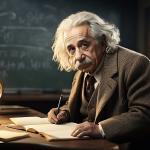Left Behind, pp. 292-298 (round 2)
Buck Williams, our hero, is a terrible reporter. During the past two days he has conducted two blockbuster interviews packed with astonishing revelations. He will not write about either of them. Ever.
First, back in London, he spoke with Inspector Alan Tompkins. Tompkins recounted scenes of brazen corruption, including his own eyewitness testimony of explicit death threats against police officers and their families. Those threats were made by a prominent public figure, Todd-Cothran, who as the head of the London Stock Exchange has to be concerned about his reputation and respectability.
Tompkins' allegations were so explosive that I could understand Buck hesitating to publish them without confirmation from an additional source. But then again the interview ended with Tompkins' execution, which would seem to provide at least enough confirmation to go ahead with publishing an account of his assertions about death threats moments before they were carried out.
But Buck never even considered doing that. Nor did he consider, at the very least, writing up his own eyewitness account of Tompkins' death. Buck's fleeing the scene made sense because the police were complicit in this murder, but that only makes this an even bigger story, a story that needed to be told.
Yet when he arrives safely back in New York, riding in a cab with his editor, neither of them even thinks of calling Todd-Cothran to force him to deny Tompkins' story. Neither of them gives Tompkins' story a second thought. Instead, they rush off to hear a speech about the history of the United Nations.
Now it's early Tuesday morning, less than 48 hours after the London interview, and Buck is sitting in the Plaza Hotel, talking to the president of Romania and with scarcely any prodding he begins telling Buck about the very same conspiracy that Tompkins told him about. Now he's got two sources telling him the same thing and he's still not interested in the story.
In Buck's defense, the authors hint that he may be under the spell of Carpathia's Antichrist mojo:
The Romanian sat forward and looked directly into Buck's eyes. That gave Buck such a feeling of peace and security that he felt free to tell him everything. Everything. Even that his friend Dirk had tipped him off about someone meeting with Stonagal and Todd-Cothran, and Buck's assuming it was Carpathia. …
That was the news that put Buck Williams on a plane to England — the hot tip that a banker, a stockbroker and a politician had attended a meeting. Riveting stuff. Very dog-bites-man, but without quite so much action. Here then is all you need to know about Buck's idea of what constitutes a story: "Businessmen conduct meeting" is big news; "Businessman kills police inspector with car bomb" is not.
"It was I," Carpathia said. "But let me make this very clear. I know nothing of any conspiracy. I have never even heard of such a thing. Mr. Stonagal felt it would be good for me to meet some of his colleagues and men of international influence. I formed no opinions about any of them, neither am I beholden to any of them."
And then, after clearly stating that he's never heard of any conspiracy, that he has no opinions about Stonagal's friends, and that he owes nothing to anyone, Carpathia goes on — for the next several pages — to sketch out the shape of the conspiracy, to provide his opinion of those involved, and to explain the rather large favors they are doing for him. Stonagal, for example, plans to use his wealth and leverage to ensure that the current secretary-general will step down and be replaced by Carpathia. The group will then, well, conspire to ensure that Todd-Cothran represents the U.K. on a reconfigured Security Council.
"Would that not be interesting?" [Carpathia] said. "A nonpolitician, a brilliant financial mind, one who was wise enough and kind enough and globally minded enough to allow the world to go to a three-currency system that did not include his own pounds sterling?"
So again, no conspiracy, nope, none at all. And he doesn't have any opinion one way or another about Todd-Cothran.
LaHaye and Jenkins used these interviews with Tompkins and Carpathia as expository shortcuts, a way of telling the readers about the machinations behind Nicolae's rise to the U.N. "throne." But in the course of this, Buck has learned about all of this too. He now knows all the details of an international conspiracy — one that includes bribery, extortion and murder — to alter the world's currency system. (He still doesn't know why these criminals would want a three-currency system, but he knows they're using criminal means to bring it about.) Any respectable protagonist at this point ought to be thinking that he's got to get out of there and find a reporter who will listen to his story, but of course Buck is a reporter.
We've all seen bad movies in which the plot doesn't make sense because they haven't provided a valid reason why the heroes don't just go to the police. This is that movie. Except here it's worse because the hero is a policeman and he won't even go to himself.
The authors haven't forgotten that Buck is a reporter, it's just that, like Buck himself, they can't seem to imagine how that might be relevant. In these same pages, while Carpathia tells of his past — and of why he is deeply, massively "beholden" to Stonagal — the authors try to portray Buck as a tough, probing investigative journalist. "This is the kind of thing I write against," he says at one point. And then, of course, he doesn't.
When he was younger, Carpathia says, he made some money as a businessman:
"I studied at night, many languages, the ones I needed to succeed. …"
L&J seem to think that fluency in multiple languages is a path to riches. They should know better since, after all, they're millionaires and they're not even fluent in English.
"During the day I ran my own import-and-export business and made myself wealthy. But what I thought was wealth was paltry compared to what was possible. I needed to learn that. I learned it the hard way. I borrowed millions from a European bank, then found that someone in that bank informed my major competitor what I was doing. I was defeated at my own game, defaulted on my loan, and was struggling. Then that same bank bailed me out and ruined my rival. I didn't mean to or want to hurt the rival. He was used by the bank to lock me into a relationship.
"Was that bank owned by an influential American?"
Carpathia ignored the question. "What I had to learn, in just over a decade, is how much money is out there."
"Out there?"
"In the banks of the world."
"Especially those owned by Jonathan Stonagal," Buck suggested.
Carpathia still wasn't biting.
And he never does "bite." He never gives Buck a straight answer to his slanted questions about Stonagal. He never has to because Buck just lets it drop. The authors, or Buck, or both seem to subscribe to the Tim Russert school of journalism: As long as you ask the tough questions it doesn't matter whether or not you insist on, or receive, an answer.*
In all of this there is a seed of something better. There's a hint here of Carpathia as an idealistic man who has allied himself with powerful but ruthless men in the hopes that they will enable him to achieve his own aims without interference. That could have been an interesting story — the Antichrist as a tragic figure. But the authors don't have time for that, and any hint that Carpathia's purported idealism is genuine gets blown away (literally) in the following chapters.
Carpathia prefaces the personal history above by asking Buck a question:
"I believe in the power of money. Do you?"
Buck says, "No." I take it he means that he believes that money is not the only power, or not the greatest power, because otherwise, for an investigative reporter who's been on the job for more than a day or two, that's the wrong answer. One of the fundamental rules of investigative journalism after all is, in the words of Deep Throat [in William Goldman's screenplay], "Follow the money." Buck himself says that he "writes against" this power. Why bother doing that if it wasn't real?**
For Buck, I suppose, money — even the manipulation of international currency systems by a cabal of bankers and stockbrokers — falls into the same non-newsworthy category as the assassination of police officers.
[CX: Fixed attribution for "Follow the money," thanks Stephen.]
– – – – – – – – – – – –
* If you're ever elected to office and subsequently caught red-handed in a lie, scandal or high treason, get yourself booked on Russert's "Meet the Press." Then, when he confronts you about it, say this, "I love America, Tim." He will, unfailingly, treat this non-sequitur as a satisfactory answer and — for the rest of the interview and for the rest of your long, successful career in politics — your lie/scandal/treason will miraculously be transformed into an "old story" that has been "dealt with."
** We tend to think of the monolatrous passages in the Hebrew scriptures — things like 1 Samuel 5 or Psalm 82 — as anachronistic remnants from before monolatry gave way to monotheism. But there's at least one such passage in the New Testament as well: "You cannot serve God and Mammon."
















